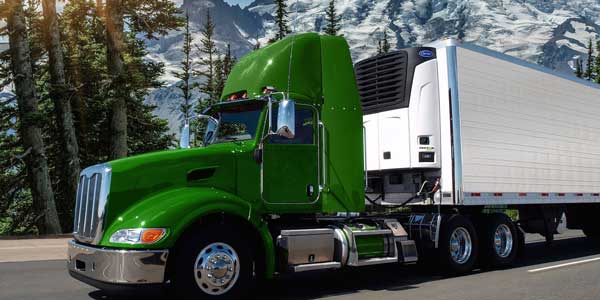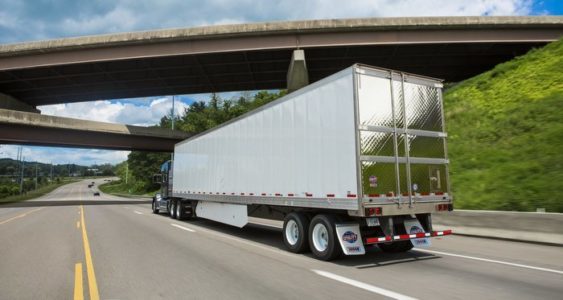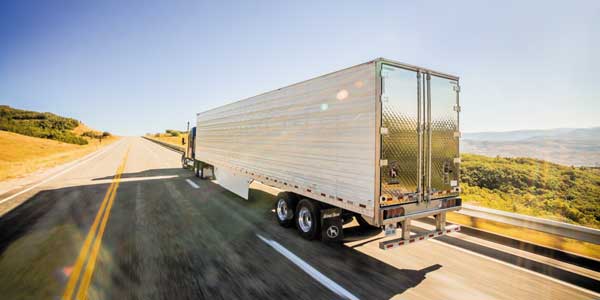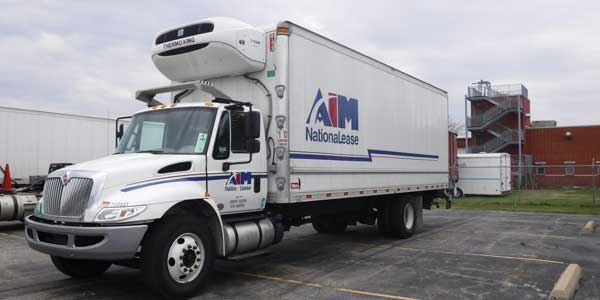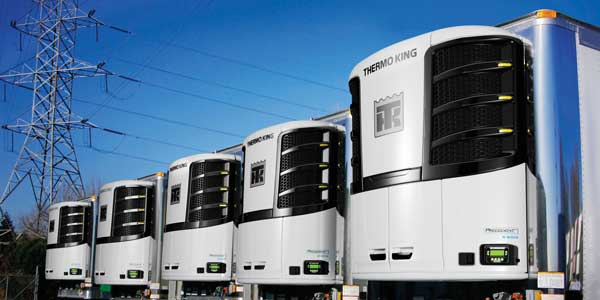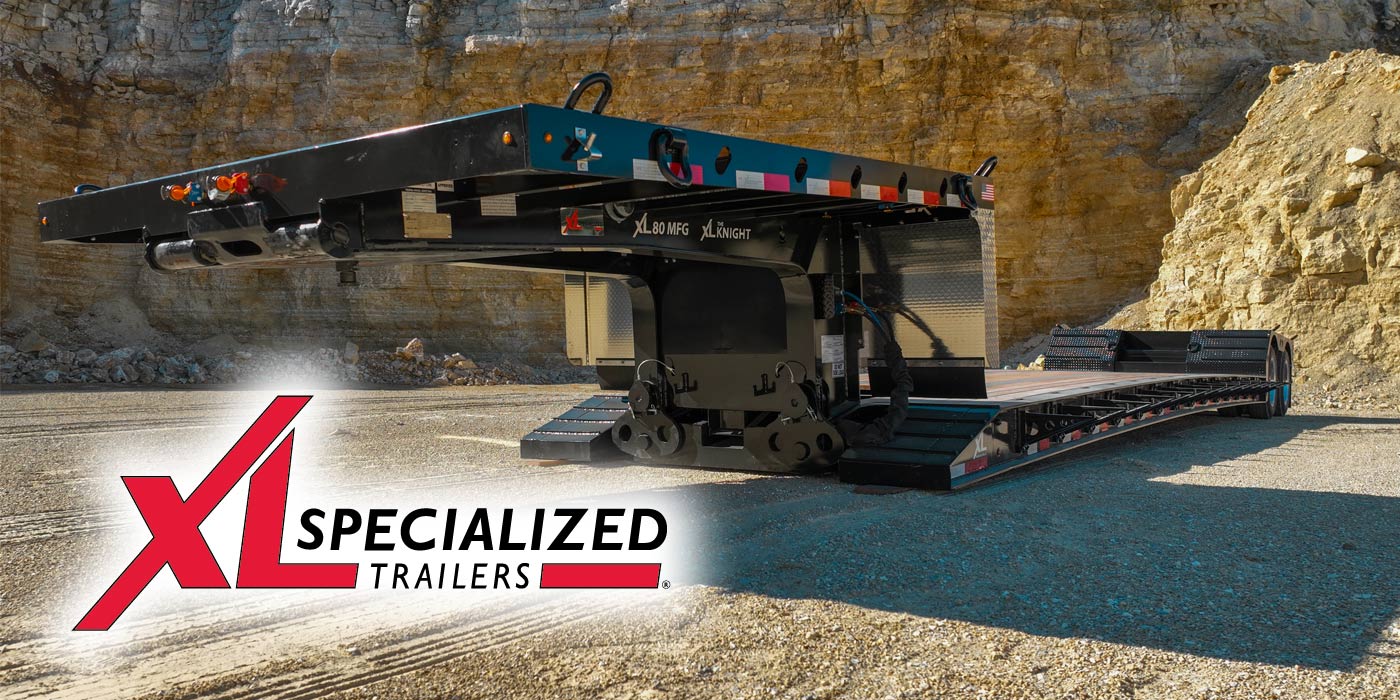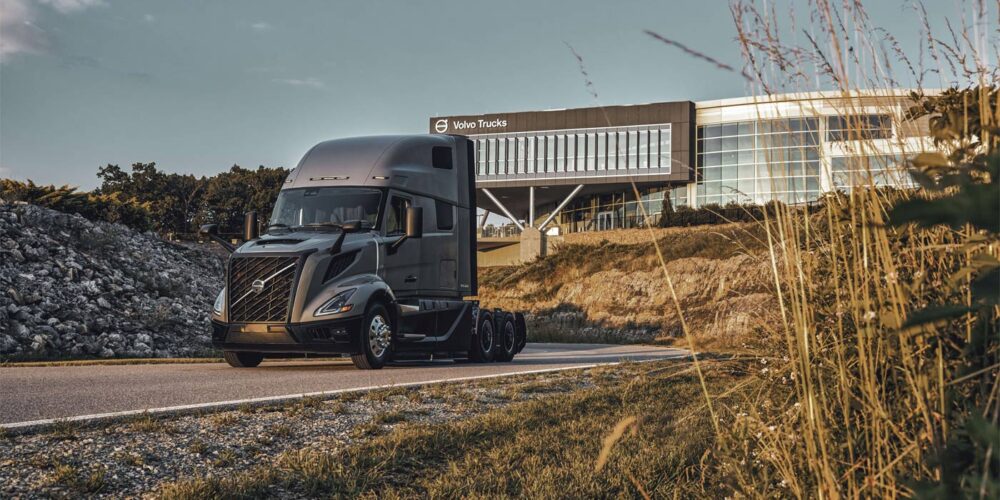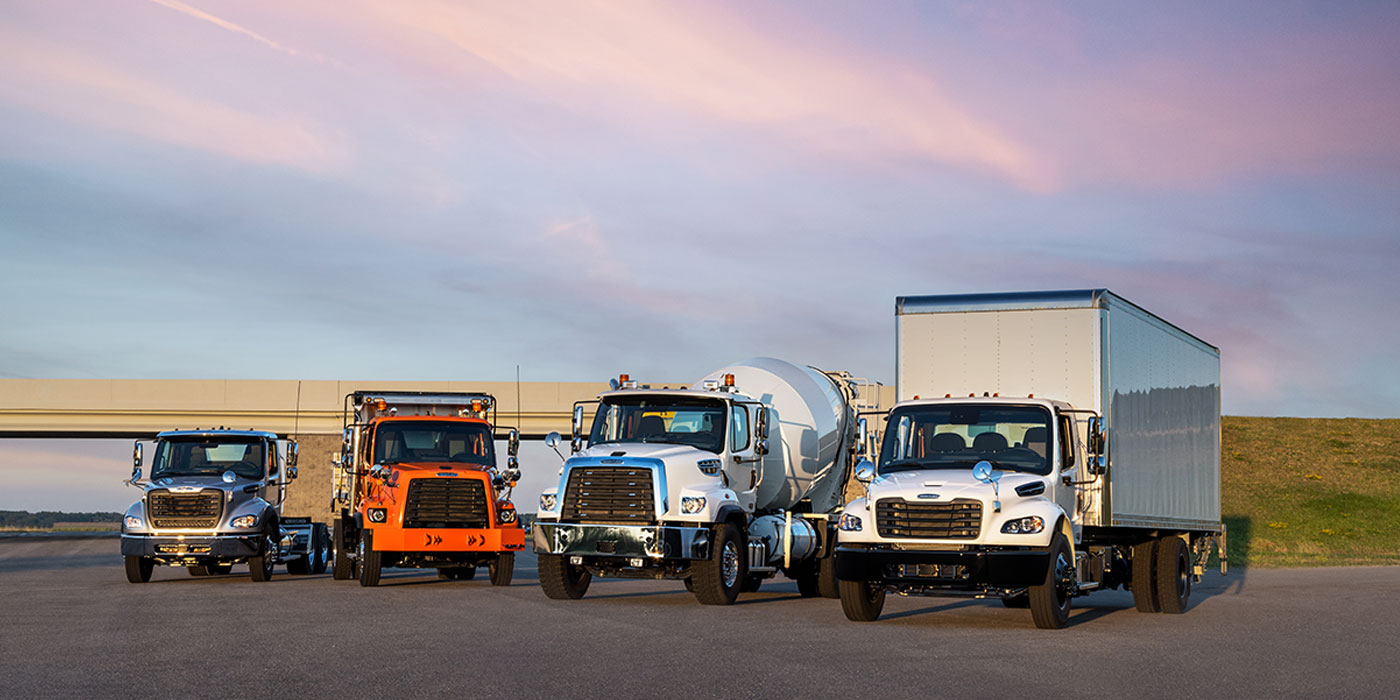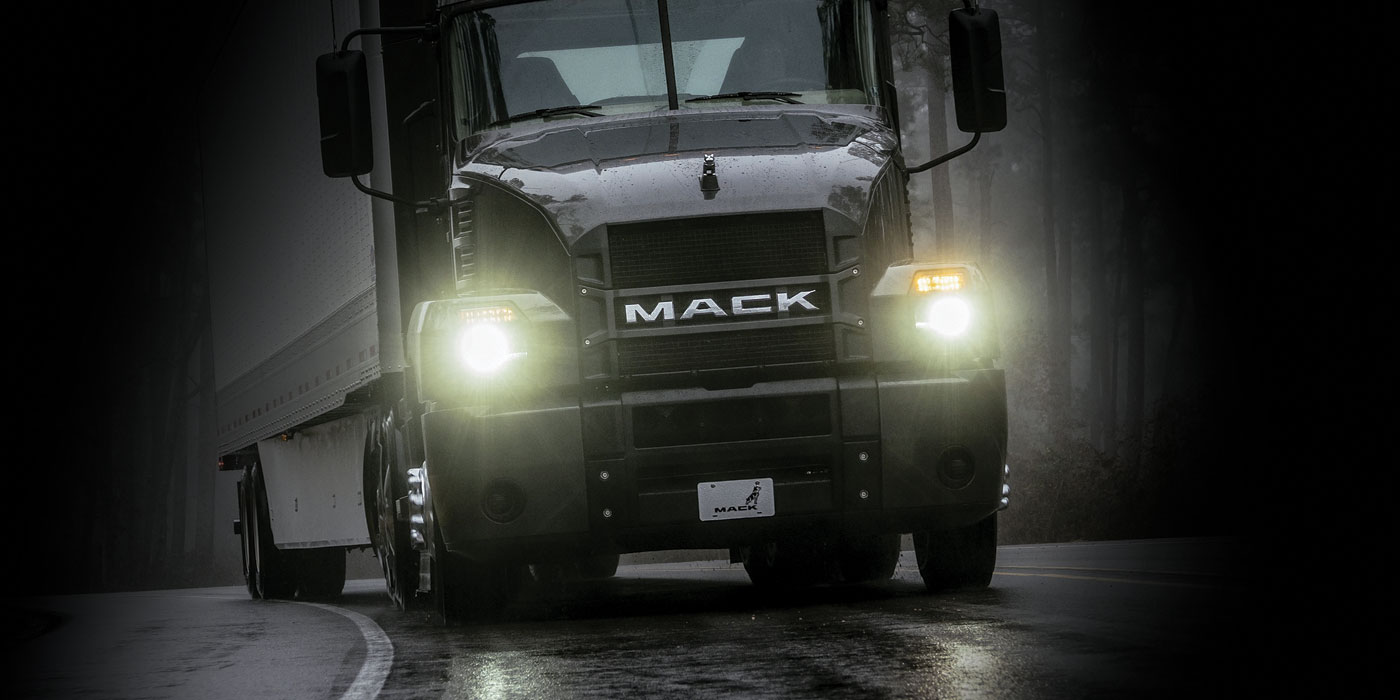The mandated FDA Food Safety Modernization Act (FSMA) Hazard Analysis Critical Control Point (HACCP) program is a management system in which food safety is addressed through the analysis and control of biological, chemical and physical hazards. It covers everything from raw material production, procurement and handling to manufacturing, distribution and consumption of the finished product. It provides a systematic way to ensure food safety through manufacturing processes and documentation. The newest rules regarding food safety cover food manufacturers and all those involved in the distribution and handling systems of those foods.
Equipped to comply
“FSMA has increased the installation of temperature monitoring equipment on our trailers and abilities to transmit, record and store this data,” says Craig Bennett, senior vice president of sales and marketing for Utility Trailer. “In addition, the number of multi-temperature trailers has increased to insure proper temperatures can be maintained for each commodity being hauled in the same trailer, as required by the food or pharmaceutical manufacturer. This is the transport company’s requirement while the commodity is in their control. This monitoring equipment can also record exact times of the transport company’s control of the commodities and temperatures. Some are also now using temperature probes in the different compartments or directly in the product itself.”
Proper loading of trailers allowing for consistent air flow throughout the trailer is mandatory to maintain proper temperature management. “Without proper adequate air flow temperature management is not possible and fleets can be in jeopardy,” Bennett warns. “In food service operations, faster offloading of products at retail companies, can minimize temperature control losses with open doors, by virtue of new larger side door platforms and steps to speed safe efficient delivery of product. Faster product offloading also lowers costs by reducing reefer unit fuel costs.”
Bennett calls out the following features to help with temperature management—building a tight box with low BTU heat loss ratings and low air loss due to unique insulation processes; FDA compliant interior linings that are easy to clean to minimize contamination; minimization of interior lining and wearband and closure fasteners to reduce moisture entry into the wall and floor insulation cavities that can reduce insulative capabilities; and designing a lighter weight yet strong trailer to maximize payload. Bennett also adds that this is especially true when delivery stops are close together and time for recharging of the batteries is minimal.
Solar panel use is a growing trend to help recharge the batteries to meet this growing power demand. They can be added to the trailer roof or on top of the reefer unit itself.
Repairing of interior walls, floor damage and punctures is critical to be accomplished in a timely manner to minimize damaging water entry into the wall and floor cavities. Regular inspection and maintenance of equipment will extend trailer and insulation life, lower costly repairs, reduce down time, and also lower additional reefer unit fuel costs to make up for reduced trailer BTU values.
Designed for compliance
When asked to elaborate on the impact of HACCP legislation on refrigerated van trailer technology and new trailer builds, Chris Lee, Great Dane’s vice president of engineering, says: “HACCP legislation has definitely impacted refrigerated van trailer technology and builds. At Great Dane, we have been preparing for increasingly stringent food carriage regulations for several years. First, both PunctureGuard and ThermoGuard, our exclusive linings, now come standard with Microban antimicrobial protection, which actively fights the growth of bacteria that can cause odors and stains in the liner and helps support requirements under the FSMA. Composite sills and furring have replaced the use of wood as support in the construction of our Everest reefers to help eliminate rot and moisture absorption. Also, all of the floors, gutters and sidewall flashings on the Everest are fully welded.”
Lee went on to explain that recent changes to floor, scuffband and gutter designs have also enhanced the waterproof integrity of Everest reefers. Additionally, Great Dane’s ThermoGuard lining helps maintain insulation performance for the life of the trailer and now comes standard with Microban antimicrobial protection. Made with a proprietary barrier layer, ThermoGuard reduces cooling run time, helps maintain excess cooling capacity and reduces fuel consumption so fleets can be assured their cargo will stay at the correct temperature.
According to Lee, the Everest reefer is manufactured with a process that ensures consistency throughout the panels and void-free insulation He says that the modular design joins the panels to create a continuous blanket of insulation at all connection points. The interior ceiling-to-sidewall connection uses a fastenerless cove molding to seal the joint against moisture and bacteria. Finally, the high-performance floor design protects cargo from underneath and helps ensure proper temperatures.
The Everest Single-Temp comes standard with a TTMA-rated 18,000-lb. aluminum duct floor and the Everest Multi-Temp is standard with a 20,000-lb.-rated heavy-duty reefer cargo Safety-Grip floor.
Leasing reefers
When working with suppliers and customers, Joe Gallick, senior vice president of national account sales with NationaLease, says that his company makes every effort to align their supplier’s key points of contact with their customer’s operations team as well as NationaLease’s own maintenance team. “Each of these contributors will bring to the table their unique expertise — from a transportation, manufacturing and vehicle maintenance perspective,” Gallick says. “Our strategic suppliers have made significant research and development investments in order to engineer their product to provide the highest level of value to their customers.
“The cold chain industry is very wide and diverse and, as such, even seemingly minor specifications can create enormous benefits for the end user, or serious problems if overlooked,” he continues. “As a result, we begin with an effort to understand our customer’s business and their specific requirements to best meet the needs of multiple constituents throughout their distribution process, including their product staging and loading methods, climate control environment, material handling equipment and product positioning within the truck, as well as delivery sequencing, temperature requirements including multiple compartments, frequency of door openings, product off-loading, and much more. From there, appropriate component specifications can be agreed upon to create an optimal solution for the safe and efficient use of the asset.”
Gallick adds that NationaLease benefits greatly through its supplier partnership programs with the majority of original equipment manufacturers, allowing customers to specify the right truck for the right application for their lease and rental customers. Included in these programs are purchasing relationships with major truck chassis, refrigerated body and temperature control system manufacturers. This enables us to address the needs of our customers specific to the industries they serve by providing a wide range of vehicle configurations from light-duty vans to mid-range straight trucks and full refrigerated trailers.
Full Service Leasing offers numerous operating and financial benefits to commercial fleet operators. NationaLease is comprised of more than 165 independent businesses, which operate in more than 600 locations throughout the U.S. and Canada, with a combined customer fleet in excess of 100,000 tractors, trucks, and trailers.
General purpose reefer rentals
“We provide reefer rental and leasing solutions to a variety of companies across multiple industries, including truckload carriers, grocery chains, dedicated carriers and more who are hauling temperature-sensitive freight,” says Steve Zaborowski, senior vice president with XTRALease. “As a result, we need to spec our general rental reefers for multiple purposes. Our big focus is spec’ing for damage resistance, ease of loading, structural integrity and cooling capacity. We take great strides to preserve the integrity of the cooling envelope. For example, we install an interior liner that is tough on forklift damage punctures so it doesn’t denigrate the cooling capacity.”
Another issue is weight. “To counter heavy forklift and loading activity, we use a heavy-duty top floor to beef up floor strength,” Zaborowski continues. “As you strengthen the trailer with certain components, it adds weight, so we also look for areas to remove weight. For example, we use aluminum cross members in the trailer’s bay area. Our standard on most trailers is a 4-in. steel cross member. However, on reefers, we use a 5-in. aluminum cross member in the bay area. It’s lighter, but still provides the toughness we need. There are other things we also work on with manufacturers to spec reefers.
“For example, at the trailer front we spec a strong bulk head and pallet stops. We use aluminum pallet stops that are backed by hard rubber. This helps reinforce the front of the trailer and protects it from loading damage. If a customer has specialized requirements, we¹ll work with the manufacturers on specs. For example, if there is a high frequency of loading and unloading—in a grocery fleet, for example—we’ll make spec changes to accommodate them. We install free trailer tracking on all reefers to help with trailer utilization. On long-term leases, we also offer full reefer telematics as an option to monitor and adjust temperature control remotely. We offer rental trailers from a variety of trailer and reefer unit manufacturers. XTRA Lease buys equipment often, so we have a young reefer fleet with lower reefer unit hours.”
Flexibility is probably the greatest benefit of leasing. “Fleets can get new, quality reefers without making a huge capital investment,” Zaborowski says. “This works well for fleets who have short- to medium-term freight hauling contracts. They can acquire the trailers they need and turn the equipment in at the end of the contract. Leasing also works well for fleets that want to operate new equipment to ensure they get the best performance and the most modern technology. Once the lease is over, they can roll it over into new equipment again. Reefer unit manufacturers continue to improve cooling capacity and temperature control. Leasing provides fleets the opportunity to operate and regularly acquire the most efficient equipment on the market.”
Variables & options
Although many variables come into play, Kiefer notes, “Applications such as Carrier Transicold’s IntelliSet option enable refrigeration parameters to be pre-programmed into unit controls so operators can simply choose a commodity from a scrolling list. By using these features to optimize fuel efficiency while maintaining good temperature control, one of our large fleet customers achieved 36% reduced runtime, translating into approximately 2 million gallons of diesel fuel saved each year, while also reducing fleet carbon emissions and extending service intervals for further savings.
“More customers are finding solar panels and data recording devices to be helpful for their operations,” Kiefer adds. “Refrigeration unit batteries are increasingly used to power additional electronics such as telematics devices, fuel-level sensors, interior trailer lighting and other accessories, so maintaining their charge is more critical than ever.”
Carrier Transicold’s Thin-Film Flexible Solar Panels are designed specifically to maintain the transport refrigeration unit battery charge, and their amorphous silicon solar cell technology performs reliably even in low- and indirect-lighting conditions. As long as there is daylight, they will generate a charge, and that includes cloudy days, Kiefer says.
The transportation rules of the FSMA have driven interest in options that assist with record-keeping, including use of telematics and independent temperature monitoring devices, such as Carrier Transicold’s DataLink 2 recorder.
It’s clear that one of the current trends is greater electrification of trucking equipment. The same holds true in the refrigerated trailer segment.
“As recently as September’s North American Commercial Vehicle show, we saw new examples of electric powertrains for long-haul truckers. Kiefer says, “Carrier Transicold’s Vector series trailer refrigeration units use E-Drive all-electric refrigeration technology. Our customers continue to discover its advantages. For one, all-electric refrigeration offers greater efficiencies than traditional mechanical systems, as they only energize components when they need to run, resulting in greater cooling capacity using less energy. And, without requiring additional electromechanical components, E-Drive technology also enables trailer refrigeration units to operate on electric standby power when parked.”
Kiefer explained that this eliminates emissions and noise from the refrigeration unit engine, conserves fuel and reduces operating costs. All-electric operation also opens a pathway for future power delivery systems to run the refrigeration system as developments in electric trucking advance.
Connected solutions
Thermo King continually seeks to pull more efficiency out of its trailer refrigeration units.
“Some examples would include the option to run in either Cycle Sentry (start / stop) or continuous operation depending on the needs of your cargo, telematics to monitor unit operation and cargo temperature or our Precision Temp Control (PTC) options for multi-temp trailer and self-powered truck units,” says Carl Breczinski, product manager of multi-temp trailer and self-powered truck with Thermo King North America. “These options allow customers to optimize and monitor their temp control. Our SR4 and SR3 control platforms offer many options to help customers control refrigeration temperature such as adjusting cycle sentry restart temperatures.
“Another new option is the new hot gas heat option to complement traditional coolant heat options in the V-320 series. Heat options are great for allowing a customer in more temperate climates to maintain temperatures when they may need seasonal heat at times throughout the year. The hot gas heat option has advantages over traditional coolant heat options in that they are simpler to install and do not tap into an OEM vehicle’s cooling system where the OEM warranty could be impacted,” adds Breczinski.
Thermo King also recently unveiled the Connected Precedent trailer refrigeration unit. Starting in 2018, all Precedent units will be equipped from the factory with Thermo King’s asset management system TracKing, which provides real-time updates for efficient temperature management, Food Safety Modernization Act (FSMA) compliance and refrigeration unit performance. Once activated, the Connected Precedent allows users to monitor and analyze refrigerated operations to ensure temperature compliance and maximum uptime—without taking assets off the road.
With in-cab and in-yard access via the Thermo King Reefer mobile app using Bluetooth, drivers can manage cargo temperatures, monitor the reefer and respond to alerts all within the cab. Similarly, in-yard access makes it easier to prepare reefers for trips, ensuring that they are fueled and alarm-free, Thermo King said. In-yard access via Bluetooth delivers easy access to all trailers irrespective of their location, the company added.
Breczinski also highlights Thermo King’s nationwide dealer network, which he says is always ready to help customers understand the needs of their application and what unit is best suited to their specific business, even if their needs are outside of the norm.
Spec’ing trailer refrigeration units
“Today’s transport refrigeration systems deliver precise temperature control and are designed to do so more efficiently and sustainably than previous generations of equipment,” says David Kiefer, director of sales, marketing and product management for Carrier Transicold’s truck, trailer, rail division. “In response to EPA particulate emissions requirements, our technologies have enabled greater refrigeration capacity using less engine power resulting in significantly lower fuel consumption per BTU of cooling.”
Reduced fuel consumption also results in a commensurate reduction in greenhouse gas emissions, Kiefer says, which helps fleets to improve their sustainability profile, while controlling fuel and operating costs. Sophisticated unit control software helps fleets to fine tune temperature management, adhere to sustainability metrics and reduce operating costs, depending on factors such as customer temperature control requirements, ambient conditions and efficiency goals.

